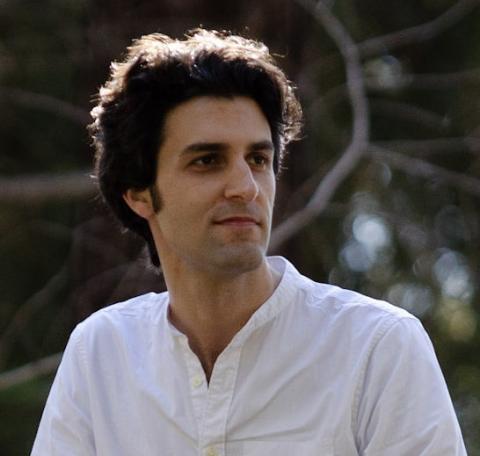
Ryan Suleiman
For media inquiries, please contact Media Relations
Ryan Suleiman was born to Lebanese and midwestern parents in California. His music engages with dreaming, the natural world, and the understated beauty of everyday life. His one-act chamber opera, Moon, Bride, Dogs, was described by the San Francisco Chronicle as “a gem” with “an aesthetic that is at once so strange and so accessible.” While his artistic interests vary, he seeks ways of conveying the simultaneity of beauty and dread that characterizes our times.
Suleiman’s music has been performed at numerous festivals, including the Summer Institute for Contemporary Performance Practice in Boston, Massachusetts; June in Buffalo in New York; and the NANOworks Opera Workshop in Atlanta, Georgia; and he has collaborated with numerous ensembles. Recent projects include the opera The School for Girls Who Lost Everything in the Fire (in progress) with writer Cristina Fríes, a piano concerto exploring the apocalypse, and a work for socially-distanced soprano and chamber ensemble that contemplates collective feelings of isolation.
Suleiman completed his Ph.D. at the University of California, Davis, where he wrote his dissertation on Unsuk Chin’s Cello Concerto through the lens of dreams and performance. He is currently an assistant professor at Berklee College of Music and has held teaching positions at the Sacramento State School of Music and UC Davis. He currently resides in Boston with his partner and several furry animals.
- Collaborations and commissions with Left Coast Chamber Ensemble, West Edge Opera, Juventas Ensemble, Daedalus Quartet, and Calder Quartet, among many others
- Piano cycle Under Moonlight recorded by Jai Jeffryes in the solo album Amethyst, released by Naxos
- Provost Fellowship, University of California, Davis
